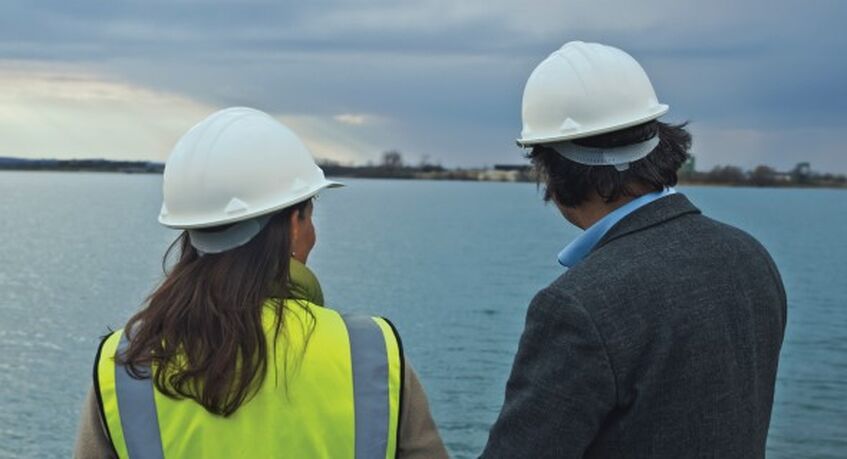Unlocking Growth: How the Freeport Tax Benefits Can Boost Highland Businesses

Angus MacLeod, Partner and Head of WJM’s Inverness office explores how businesses can unlock the full value of Green Freeport tax incentives in the Highlands.
The establishment of tax sites within the Inverness and Cromarty Firth Green Freeport (ICFGF) marks a major opportunity for the region, offering a range of valuable tax incentives for new and expanding businesses, but they won’t be around forever, with benefits needing to be claimed by the 30th September 2034’.
Wright, Johnston & Mackenzie LLP’s Inverness team outlines five of these benefits in detail, looking at the ways in which they encourage investment and development within the Freeport and explaining how businesses can utilise them to their advantage.
Land and Buildings Transaction Tax Relief
One of the most immediate savings comes from Land and Buildings Transaction Tax (LBTT). Normally charged on commercial property purchases above a certain value, LBTT can be reduced or eliminated entirely if the land is used for qualifying commercial purposes and the transaction is completed before the relief deadline.
Partial relief is also available, offering flexibility. For instance, a business buying land for £1 million would typically pay £38,500 in LBTT. If the whole site qualifies, they save the full amount. If only 70% qualifies, they save £26,950 and pay £11,550.
Enhanced Structures and Buildings Allowance
This allowance lets businesses deduct 10% annually on qualifying construction costs—more than triple the standard 3%. This can significantly reduce taxable profits over a decade.
A £1million build in the Freeport, for example, allows a company to deduct £100,000 each year for 10 years.
Compared to the standard £300,000 total deduction, that’s an extra £700,000 in tax-deductible costs.
Full Non-Domestic Rates Relief
This relief offers a five-year exemption on business rates for qualifying new properties and partial relief on expansions. It applies to businesses moving into or expanding within the zone. However, the relief may be shortened if other rates reliefs are claimed simultaneously.
For a property with a £50,000 rateable value, and a poundage rate of 50p, a business would normally pay £25,000 annually. With full relief, that’s a saving of £125,000 over five years.
Enhanced Capital Allowances
Capital allowances let businesses deduct the cost of plant and machinery from taxable profits. Within the Freeport, businesses can deduct 100% of the cost in the year of purchase—so long as the equipment is new, used primarily in the Freeport, and not relocated within five years.
If a company invests £1million in new machinery, it can deduct the full amount immediately. With £2million in profits, its taxable amount drops to £1million, saving £250,000 in Corporation Tax at a 25% rate.
Employer National Insurance Contributions Relief
Recent increases in employer NICs make this relief especially valuable. Employers in the Freeport can pay 0% NICs for up to 36 months for new hires who work primarily in the zone.
If an employee earns £25,000, the employer normally pays £3,750 annually in NICs. With relief, that’s a £11,250 saving over three years. This applies only to the first £25,000 of salary, even if earnings are higher.
Planning is Key
While the financial advantages are significant, the rules can be complex. Eligibility conditions, deadlines, and clawback provisions require businesses to plan carefully and keep detailed records.
With the right advice, companies can reduce costs, grow their teams, and reinvest in their futures. These incentives aren’t just tax breaks—they’re tools for sustainable economic growth across the Highlands.
At Wright, Johnston & Mackenzie LLP, our Inverness team—working alongside experienced Freeport specialists at Irwin Mitchell LLP—is ready to help businesses navigate the details and make the most of these exciting opportunities. Get in touch to find out more by calling 01463 234445 or email agm@wjm.co.uk.
This article first appeared in Executive magazine
The information contained in this newsletter is for general guidance only and represents our understanding of relevant law and practice as at August 2025. Wright, Johnston & Mackenzie LLP cannot be held responsible for any action taken or not taken in reliance upon the contents. Specific advice should be taken on any individual matter. Transmissions to or from our email system and calls to or from our offices may be monitored and/or recorded for regulatory purposes. Authorised and regulated by the Financial Conduct Authority. Registered office: 319 St Vincent Street, Glasgow, G2 5RZ. A limited liability partnership registered in Scotland, number SO 300336.




